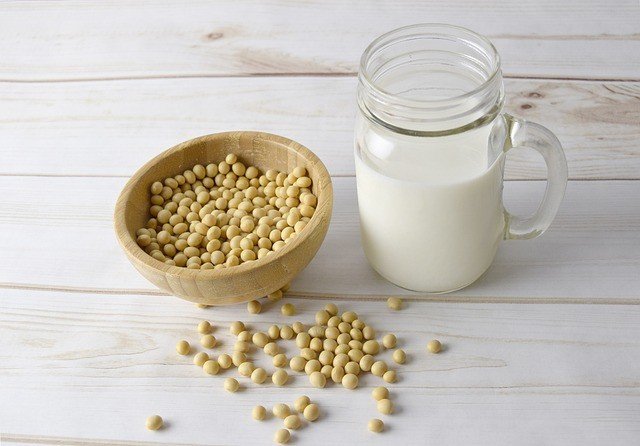Milk alternatives have gained popularity in recent years, catering to individuals with dietary restrictions, lactose intolerance, or those who choose to follow a plant-based lifestyle. Here are some common milk alternatives and their potential health benefits:
1. Almond Milk
Made from ground almonds and water, almond milk is low in calories and contains no saturated fat or cholesterol. It is a good source of vitamin E, which is an antioxidant that supports skin health. Almond milk is also fortified with calcium, vitamin D, and other nutrients to mimic the nutritional profile of cow’s milk.
2. Soy Milk
Soy milk is derived from soybeans and is a popular dairy milk substitute. It is a good source of high-quality plant-based protein and contains essential amino acids. Soy milk is also rich in calcium, vitamin D, and iron. Additionally, it naturally contains isoflavones, which are phytoestrogens that may provide some benefits for hormonal health.

3. Oat Milk
Made from oats and water, oat milk is a good option for those with nut or soy allergies. It is often fortified with nutrients such as calcium and vitamin D. Oat milk is naturally creamy and provides dietary fiber, which can help support digestive health. It also contains beta-glucans, a type of soluble fiber that may help reduce cholesterol levels.
4. Coconut Milk
Coconut milk is derived from the flesh of coconuts and has a rich, creamy texture. It contains medium-chain triglycerides (MCTs), which are a type of healthy fat that can be quickly converted into energy by the body. However, coconut milk is higher in saturated fat compared to other milk alternatives, so it’s best consumed in moderation.
5. Rice Milk
Made from milled rice and water, rice milk is a hypoallergenic option for individuals with allergies or intolerances to soy, nuts, or gluten. It is naturally sweet and has a thinner consistency compared to other milk alternatives. Rice milk is generally lower in protein compared to cow’s milk or soy milk, so it’s important to ensure adequate protein intake from other sources.
6. Hemp Milk
Hemp milk is made from hemp seeds and water. It is a good source of omega-3 and omega-6 fatty acids, which are essential for heart and brain health. Hemp milk also provides all nine essential amino acids, making it a complete protein source. It contains vitamins and minerals, including calcium and iron, and is often fortified for additional nutrients.
When choosing a milk alternative, it’s important to consider factors such as taste preference, nutritional needs, and any specific dietary restrictions or allergies. Some milk alternatives may be sweetened or flavored, so be mindful of added sugars and opt for unsweetened varieties whenever possible. Additionally, fortified milk alternatives can help ensure adequate intake of nutrients like calcium and vitamin D. Consulting with a healthcare professional or registered dietitian can provide personalized guidance on incorporating milk alternatives into a balanced diet.











